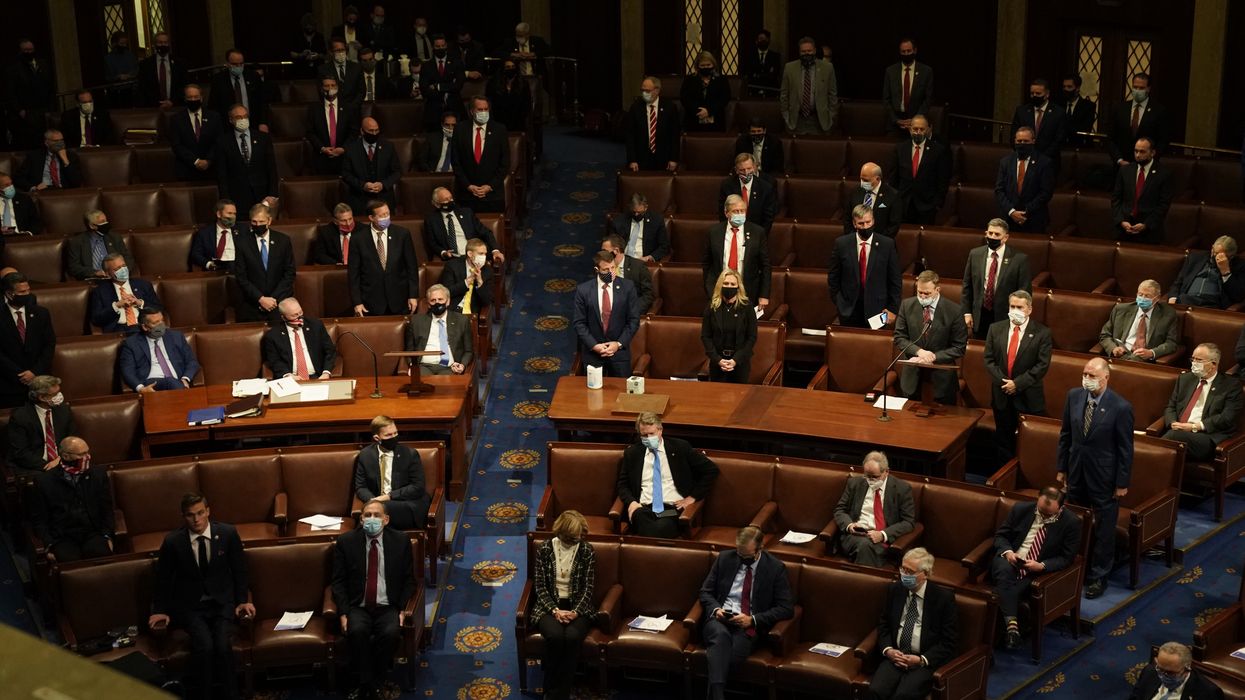Becvar is co-publisher of The Fulcrum and executive director of the Bridge Alliance Education Fund. Nevins is co-publisher of The Fulcrum and co-founder and board chairman of the Bridge Alliance Education Fund.
It is quite clear that the presidential election is going to be incredibly close. In each of the seven swing states, the margin of error is less than 2 percent.
As citizens, this is not something to fear and it is critically important that we all trust the election results.
As part of our ongoing series for the Election Overtime Project, today we present a guide explaining in detail what you, as a voter, need to know about the role of state legislatures and Congress in a presidential election. The guide was prepared by the Election Reformers Network, a nonprofit organization championing impartial elections and concrete policy solutions that strengthen American democracy.
Once Election Day has come, state legislators have no role in determining presidential results
- They can pass laws before the election deciding how the state will select its electors (winner-take-all, by congressional district, etc.).
- They cannot change how the state selects its electors after the elections.
- They cannot select a different set of electors than those chosen based on the certified results.
- They do not certify the presidential results in their state.
Candidates and parties
Candidates and/or parties have many opportunities to ensure the accuracy of the count. They have no legitimate grounds to claim they legally won once results showing they did not are final, and all court cases are resolved.
- Candidates and/or parties can designate observers to watch important election processes, in accordance with state law.
- Candidates in close elections can observe and/or request recounts in most states.
- Candidates and parties can contest results in court.
Courts
Elections are conducted according to procedures set by law; courts are the backstop candidates and officials use to ensure the law is followed.
- Courts can order election boards, canvas boards and similar bodies to certify results if they refuse to do so.
- Courts cannot hear (and must dismiss) challenges if the court lacks the authority to hear the case, if the plaintiff lacks the right to bring the case, or if there is insufficient evidence or legal basis to continue the case.
- Courts can hear and decide challenges to the election results if there is sufficient evidence that the votes were not cast or counted according to law.
Results: Election laws alone determine when results are final
- Media projections have no bearing on the results.
- Whether a candidate concedes has no bearing on the results (though failing to do so can create risks of political violence).
- The election result and selection of electors in a state becomes final when the governor (or other executive per state law) issues the Certificate of Ascertainment within 36 days of Election Day (by Dec. 11).
- The Certificate of Ascertainment is subject to change by court order if there is a successful legal challenge before the meeting of electors (Dec. 17).
Congress
The role of Congress is extremely limited, and Congress does not actually “certify” presidential results.
- Congress can witness the vice president counting — without discretion — each state’s official certificate of electoral votes.
- Members of Congress can object to counting electoral votes on a very limited set of grounds that are extremely unlikely to occur. (For example: Did the elector vote for a president who is over 35, as required by the Constitution?)
- Members of Congress cannot object to the results in any state so long as those results have been certified according to law.
- In the very unlikely event that no candidate wins a majority of electoral votes, the House of Representatives picks the president (with each state's delegation having one vote) and the Senate picks the vice president.



















